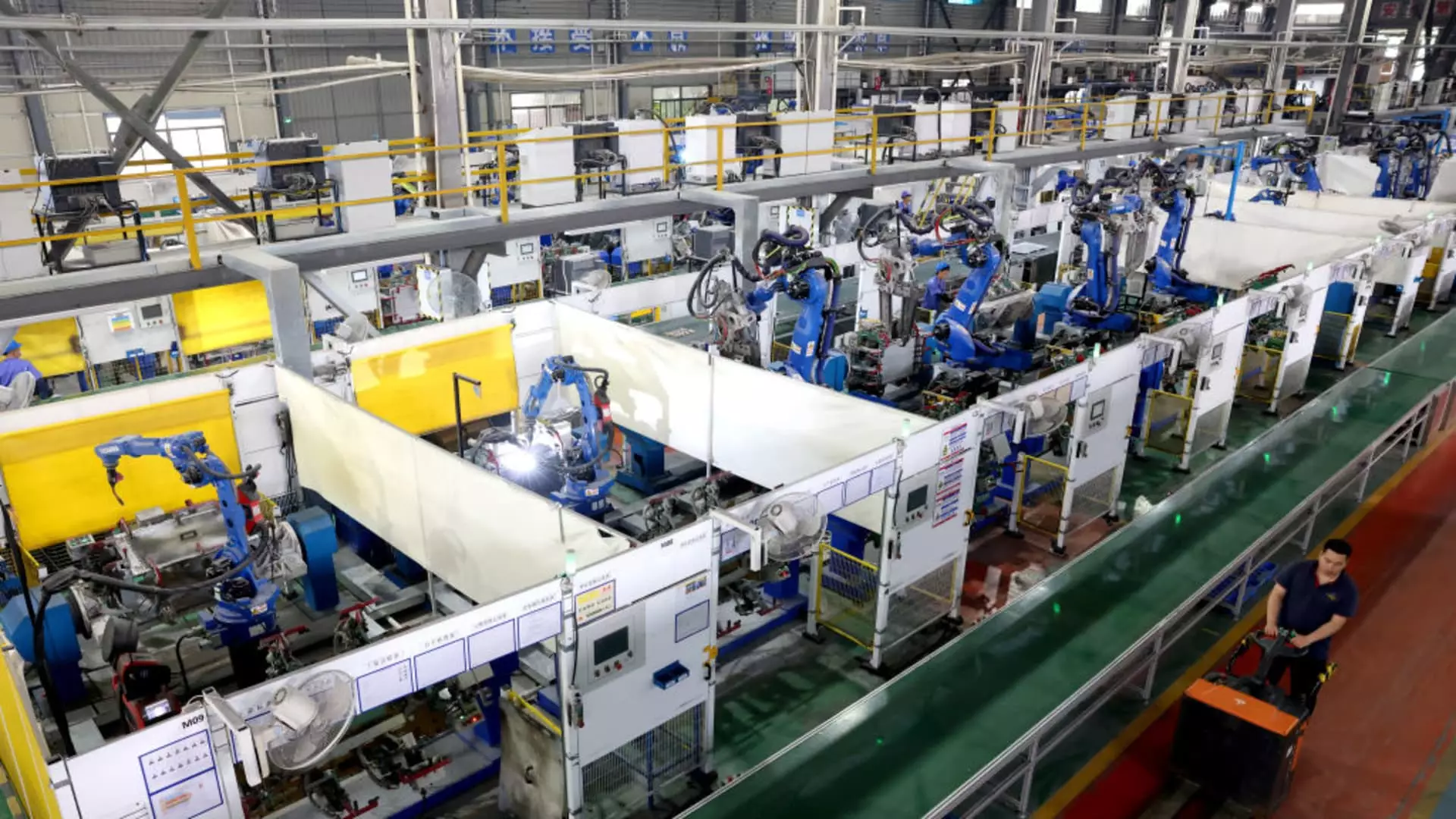European companies operating in China are facing tougher conditions when it comes to profitability. According to a recent survey by the EU Chamber of Commerce in China, growth in the country is slowing down, and overcapacity issues are on the rise. In Shanghai, delays in payment have been reported by business members, with difficulties in enforcing contracts becoming more common compared to previous years, as noted by chapter head Carlo D’Andrea. State-owned enterprises are postponing payments, using this as a way to secure de facto loans from smaller businesses. This situation is affecting profit margins, with only 30% of respondents reporting higher margins in China than globally, marking an eight-year low.
Challenges with Profitability and Growth
The current economic slowdown in China is presenting challenges for European companies. The growth rate has decreased in recent years due to geopolitical tensions and a slump in the real estate sector, impacting the overall economy. The survey revealed that only a small percentage of respondents felt that their profit margins were better in China than on a global scale. This marks a significant shift compared to previous years, indicating a trend of declining profitability for foreign companies operating in the country. Chamber President Jens Eskelund pointed out the cyclical nature of the current economic slowdown, raising questions about its duration and severity.
Difficulties in Transferring Dividends
A new challenge facing European companies in China is the difficulty in transferring dividends back to their headquarters. While the majority of respondents did not face any issues with the transfer process, a small percentage reported being unable to do so, and others experienced delays. The reasons behind these challenges are not immediately clear but could be related to regulatory changes or tax audit requirements. This adds another layer of complexity for companies operating in China, impacting their ability to repatriate profits effectively.
Trade tensions with the U.S. have further complicated the business environment for European companies in China. Beijing’s focus on manufacturing to boost tech self-sufficiency has raised concerns about overproduction and reduced profit margins. More than a third of survey respondents noted overcapacity in their industry, with expectations of further increases in the near future. This has led to price drops in various sectors, affecting both foreign and local companies. The emphasis on manufacturing and limited domestic demand has raised global concerns about the sustainability of China’s economic growth model.
Call for Improved Business Environment
While Chinese authorities have made efforts to attract foreign investment, there are calls for more significant improvements in the business environment. The EU Chamber of Commerce and other organizations have highlighted the need for better implementation of measures to support foreign companies. Survey results indicate growing concerns among respondents, with many expressing skepticism about growth potential, increasing competitive pressures, and doubts about profitability in China. The regulatory barriers and obstacles faced by foreign businesses remain a significant challenge, impacting their operations and growth prospects in the country.
As European companies continue to navigate the challenging business landscape in China, there is a need for proactive strategies to address profitability and growth concerns. Ensuring compliance with regulations, managing financial risks, and exploring new opportunities in emerging sectors could help companies mitigate the impact of economic uncertainties. By maintaining a flexible and adaptive approach to doing business in China, European companies can better position themselves to succeed in the evolving market environment.

